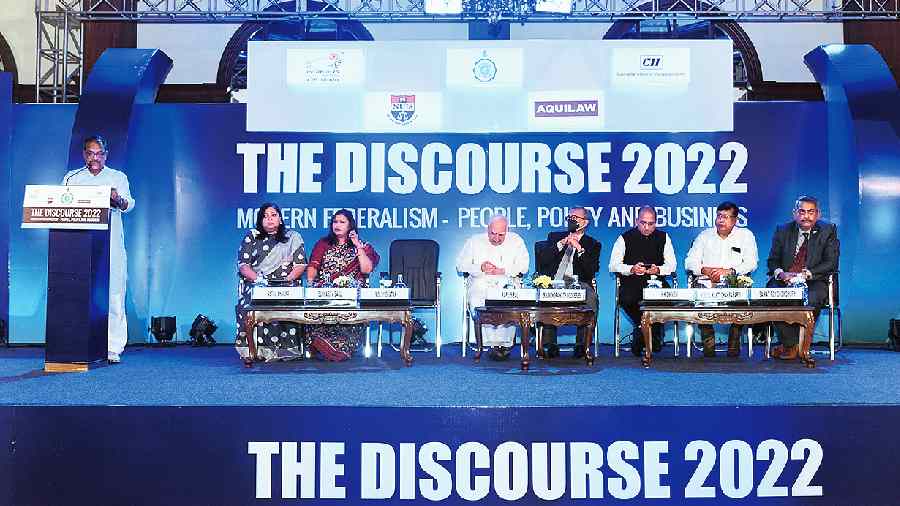A Calcutta-based businessman on Saturday spoke up in favour of the importance of state governments in a federal structure and argued in favour of a “space for policy innovation and reforms” at local administrative levels.
“If we have a government at the Centre deciding everything, where is the space for policy innovation and reforms to be tried and tested at a local level before expanding to the world?” asked Shiv Siddhant Narayan Kaul, the managing director of Nicco Engineering Services Ltd that is involved in cable manufacturing, theme parks and industrial maintenance services.
Kaul was attending a session on “Modern Federalism — People, Polity and Business”, curated by the Confederation of Indian Industries and solicitor firm Aquilaw, and made the comments while sharing his “modest two cents” on the topic.
“It’s careful I think and extremely critical to ensure that there is a federal structure, if for nothing else but the selfish reason that it allows development of ideas and policies to take place,” Kaul said.
Cooperative federalism has been a politically sensitive topic with several state governments accusing the Centre of violating the federal structure enshrined in the Constitution.
Kaul said at the event: “Our writers probably got a lot right when they said you need things like education and health to be locally administered, because as business people we need people in our businesses and people are best served when basic human infrastructure is administered locally, based on local knowledge and local preferences.”
“I think if we are going too much in a direction where these things are controlled centrally, that’s ultimately not desirable for long-run sustainability,” he added.
While public health comes under the State List, education features in the Concurrent List.
The Narendra Modi government’s National Education Policy has faced criticism for alleged attempts to saffronise education.
Kaul said the phrase “cooperative federalism” was just
a “dispute-resolution mechanism”. He added that these days cooperative federalism was nothing but “partisan rancour”.
Minutes before Kaul spoke, Rajya Sabha member Kapil Sibal, the keynote speaker of the session, said businessmen had stopped investing in India because of the coercion they face.
“A businessman who doesn’t give contributions under the electoral bond scheme is given a notice under the Companies Act. And that notice results in either a contribution or (the industrialist) facing the music. So, businessmen are no longer interested in investment in India. Thousands and thousands of them have moved out,” Sibal said.
Sibal said that in 2012, then Gujarat chief minister Modi had said the nation had turned from cooperative federalism to coercive federalism. But according to Sibal, India has now turned to coercive unilateralism.










